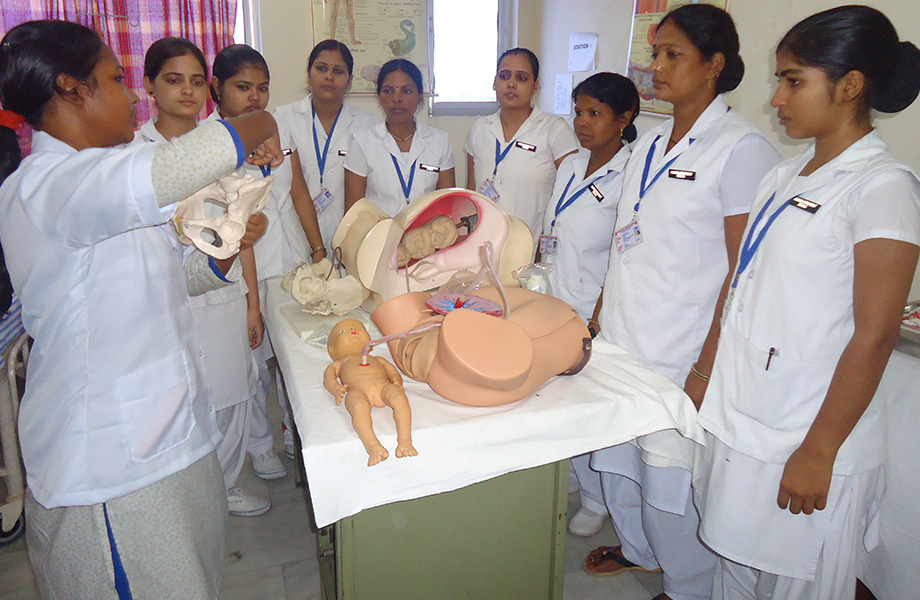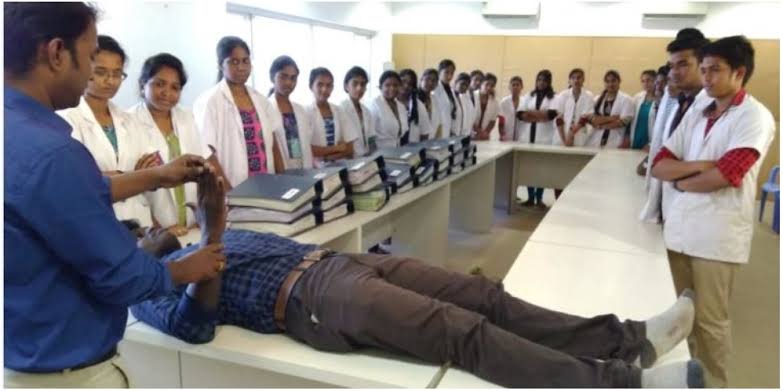Courses
- home
- Course Single

Auxiliary Nurse Midwifery(A.N.M)
-
(124 Ratings)
About the Course:
he Auxiliary Nurse Midwifery (A.N.M) program aims to develop competent healthcare professionals who can assist registered nurses and midwives in providing essential healthcare services to individuals, families, and communities. A.N.M professionals play a vital role in promoting health, preventing diseases, and providing basic healthcare support in various healthcare settings.
In the A.N.M program, students are trained in both theoretical knowledge and practical skills necessary for nursing and midwifery care. The curriculum is designed to provide students with a comprehensive understanding of healthcare concepts, nursing principles, midwifery practices, and the importance of promoting maternal and child health.
| Course Features | |
|---|---|
| Course Durations: | 2 years |
| Eligibility: | Passed 10+2 with a minimum of 50% aggregate marks any stream |
| Certification: | yes |
| Study Level: | Undergraduate |
| Admission: | Entrance-Based/Merit Base |
Work Environment:
As an Auxiliary Nurse Midwife (A.N.M), you can work in a variety of healthcare settings, both rural and urban, where basic nursing and midwifery services are required.
Career and Duties Opportunity:
What you will learn:
In the Auxiliary Nurse Midwifery (A.N.M) program, you will learn a variety of essential skills and knowledge to provide basic nursing and midwifery care. Here are some of the key areas you will cover: Fundamentals of Nursing: You will learn the foundational principles of nursing, including basic anatomy and physiology, infection control, hygiene practices, and patient safety protocols. Maternal and Child Health: This area focuses on the care of pregnant women, childbirth, postnatal care, and newborn care. You will learn about antenatal care, assisting in deliveries, managing complications during childbirth, and providing postpartum support to new mothers. Community Health Nursing: You will gain an understanding of community health principles and practices. This includes learning about health promotion, disease prevention, immunization programs, family planning, and providing healthcare services in community settings.
Medical and Surgical Nursing: This component covers the care of patients with medical and surgical conditions. You will learn about common diseases, medication administration, wound care, patient assessment, and pre- and post-operative care.
Child Health Nursing: This area focuses on the care of children, including newborns, infants, toddlers, and adolescents. You will learn about growth and development milestones, common childhood illnesses, immunizations, nutrition, and providing age-appropriate care.
Mental Health Nursing: You will be introduced to the basics of mental health nursing, including understanding common mental health disorders, therapeutic communication techniques, and providing support to individuals with mental health challenges.
Nutrition and Dietetics: This component covers the principles of nutrition and the role of diet in maintaining health. You will learn about different food groups, nutritional requirements at different life stages, and promoting healthy eating habits.
Pharmacology: You will gain knowledge of essential medications commonly used in nursing practice. This includes understanding drug classifications, dosage calculations, medication administration routes, and recognizing common side effects and adverse reactions.
Communication and Professionalism: Effective communication skills, empathy, and professionalism are vital in nursing practice. You will learn how to communicate with patients, families, and the healthcare team, while maintaining ethical standards and respecting cultural diversity.
Clinical Practice: Throughout the A.N.M program, you will have opportunities for clinical placements in healthcare settings, such as hospitals, clinics, and community health centers. These practical experiences allow you to apply your theoretical knowledge, develop clinical skills, and work under the guidance of experienced nurses and midwives.


